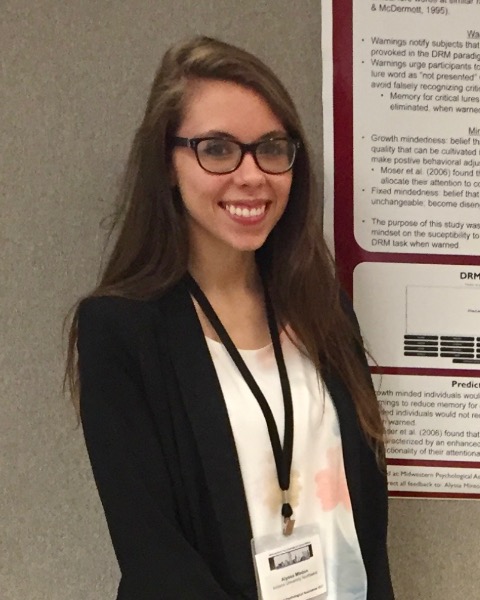Behavioral and Social Sciences
Cognitive Aspects of Managing Stress and Unwanted Emotion Successfully in Old Age
-
TE
Tammy English, PhD (she/her/hers)
Associate Professor
Psychological and Brain Sciences
Washington University in St. Louis
St. Louis, Missouri, United States -
CG
Claire Growney, PhD
Post Doc Researcher
Psychology
Stanford University
Stanford, California, United States -
TS
Tabea Springstein (she/her/hers)
PhD Student
Psychological and Brain Sciences
Washington University in St. Louis
St. Louis, Missouri, United States -

Hannah Wolfe, MS (she/her/hers)
Graduate Student Researcher
Psychology
Northeastern University
Boston, Massachusetts, United States -

Alyssa Minton, M.S.
Doctoral Candidate
DePartment of Psychology
DePaul University
Chicago, Illinois, United States
Chair(s)
Individual Symposium Abstract First Author(s)
The ability to cope with stressors and manage unwanted emotion is central to health-related outcomes across adulthood. Prominent models of adult development suggest there may be age-related shifts in motivational strivings and accumulated knowledge that help support emotional well-being in old age. At the same time, older adults have cognitive and physical vulnerabilities that may offset some of these strengths. This session will showcase new work leveraging experimental and experiencing sampling methods to examine how people of varying ages and resource levels manage their emotions. These studies provide new insights into how older adults respond to stressors and adverse stimuli in controlled settings and daily life contexts. The first talk centers on how individuals are negatively impacted by cognitive stressors regardless of age, but older adults show more resilience than younger adults after stressor exposure. The second talk focuses on how a cognitive process known as affective labeling (or naming one’s emotions) can create emotion regulation difficulties, especially in old age. The third talk examines emotion regulation success and the benefits of instructional support for cognitively normal older adults compared to those with mild cognitive impairment (MCI). The fourth talk extends this work by tracking emotion regulation motives in daily life, showing that cognitively diverse older adults report fewer attempts to manage their emotions, but similar reasons for doing so, compared to relatively younger adults. Together these presentations delineate age-related similarity and differences in emotion regulation, highlighting avenues through which coping capacity may be maintained and improve in late life.
Learning Objectives:
- After attending this session, participants will be able to describe the role of cognitive processes in successful stress management and emotion regulation in young and older adults.
- After attending this session, participants will be able to delineate how different forms of instructional support may be helpful or harmful for younger and older adults’ emotion regulation success.
- After attending this session, participants will be able to understand ways that older adults with and without mild cognitive impairment have similarities and differences in emotion regulation processes.
Presentations:
-
10:30 AM – 12:00 PM ETEmotion Regulation Success in a Laboratory Task in Young Adults and Cognitively Diverse Older Adults
Individual Symposium Abstract First Author: Claire M. Growney, PhD – Stanford University
-
10:30 AM – 12:00 PM ETHow Often and Why Do People Manage their Emotions?: Emotion Regulation in Healthy Aging and Mild Cognitive Impairment
Individual Symposium Abstract First Author: Tabea Springstein (she/her/hers) – Washington University in St. Louis
-
10:30 AM – 12:00 PM ETEffect of Emotion Naming on Emotion Regulation in Younger and Older Adults
Individual Symposium Abstract First Author: Hannah Wolfe, MS (she/her/hers) – Northeastern University
-
10:30 AM – 12:00 PM ETAge Differences in Stressor Reactivity and Recovery
Individual Symposium Abstract First Author: Alyssa R. Minton, M.S. – DePaul University
